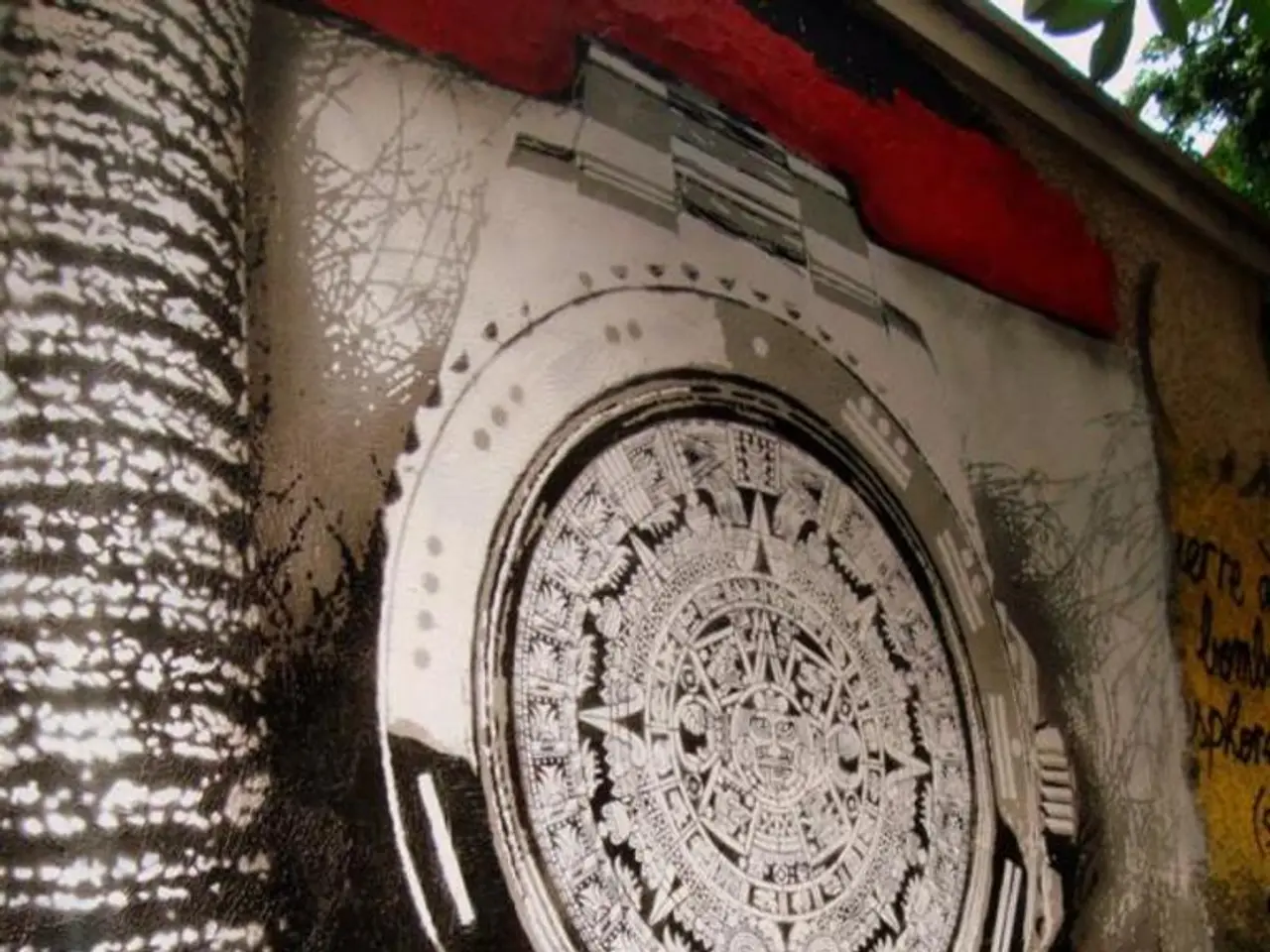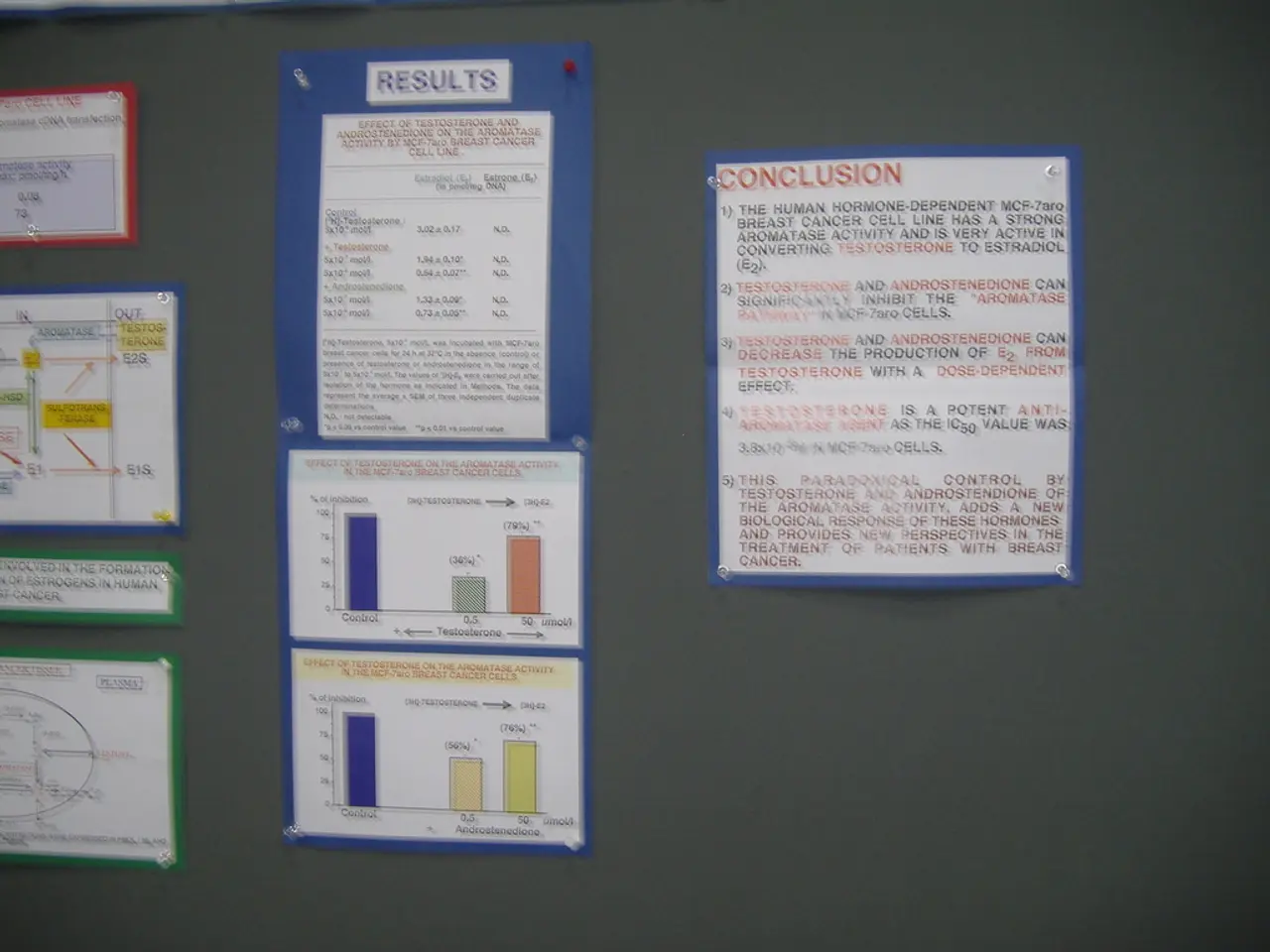Canadians' credit card spending habits leading to substantial debt accumulation
Hey there, finance fanatics! This post is all about demystifying the sneaky ways that credit cards can lead you into a debt spiral if you don't keep an eye on things.
It seems like, in Canada, more people are relying on credit cards to make ends meet, thanks to inflation pushing up everyday costs and interest rates that just won't budge. The issue? Small balances can balloon into long-term debt, especially if you're only making minimum payments or juggling multiple cards.
Below, we'll break down the top five bad credit card habits that you'd be wise to steer clear of:
Canada's growing debt problem
According to Equifax Canada, credit card balances are hitting record highs, particularly among younger Canadians between 25 and 45 years old. With rising costs of living and stagnant wages, it's no wonder that more people are turning to credit just to get by.
The problem? High credit card interest rates of between 19% and 28% make it easy to fall behind even with small balances. Unlike loans or lines of credit, credit card interest compounds quickly, and it can feel like you're stuck in an endless cycle once you start carrying a balance and only make the minimum payment.
5 bad credit card habits to dodge
Between inflation, high interest rates, and poor credit card habits, it's essential to understand how debt builds and the habits that make it worse if you want to break the cycle and take charge of your finances.
1. Only making the minimum payment
Credit card companies tempt customers into debt cycles by promoting deceptively low minimum payments. If you're carrying over a large balance from one month to the next, only making your minimum payment means you'll be taking a considerable hit by way of interest. Often, 75% or more of your minimum payment goes straight to the monthly interest fee. As a result, you won't make much progress on paying down your actual principal balance, and your credit utilization rate will increase, which can negatively impact your credit score.
2. Treating credit like a free money ATM
When you're feeling flush, the temptation to use your credit card like a personal piggy bank can be hard to resist. However, it's crucial to remember that credit cards should only be used for expenses that you can already afford with the money in your bank account. Use your card for planned expenses, and make sure you pay the amount off before the next billing cycle.
3. Sleeping on the interest rate details
Credit card interest rates are variable, meaning they can change each month based on the economy, your credit score, or your credit card company's whims. Many credit cards come with a low or no-interest introductory period when you first get the card. While this can be a lifesaver when you're doing a balance transfer to pay off another high-interest debt within that short period, it can also lull you into a false sense of security. The introductory rate eventually ends, and once you haven't paid the balance off by then, you'll be bombarded with mounting interest fees.
4. Relying on credit to cover basic expenses
If you find yourself relying on credit cards to pay for essentials like groceries, gas, or rent, then you've got a problem—either your income is too low, or your expenses are too high. In this situation, your best bet is to increase your income with a side job or a pay raise, or cut back on your spending.
5. Neglecting to make timely payments
Missing your monthly payment (which usually comes with a late fee, by the way) can hurt your credit score and cost you hundreds of dollars over a year in fees. Establishing automatic payments or reminders can help ensure that you're on time, and regularly reviewing your statements helps you catch any errors early.
By steering clear of these bad credit card habits, you'll be able to build a solid credit profile and financially thrive in a responsible manner. If you're already trapped in a cycle, it's crucial to take an honest look at your situation, create a solid plan, and be consistent in sticking to it.
Remember, the more self-discipline you practice with your finances, the more your credit score will improve, and the more you'll be able to take advantage of the rewards and perks credit cards have to offer. So, go on, financial warriors—conquer your debt demons, one credit card statement at a time!
[1] Retrieved from: https://www.theglobeandmail.com/investing/personal-finance/credit/[2] Retrieved from: https://www.nativedegree.ca/credit-cards/credit-score-facts/[3] Retrieved from: https://www.creditkarma.ca/credit-card-research/i/how-to-get-a-credit-card-as-a-newcomer-to-canada/[4] Retrieved from: https://www.moneysense.ca/save/saving-money/17-helpful-tips-for-debt-debt-debt/[5] Retrieved from: https://www.ratehub.ca/what-is-credit-score/
For more financial advice from our expert contributor, be sure to check out our opinion page! You'll find more insightful articles on home ownership, side hustles, and strategies to help you get out of debt. Keep on slaying, finance community!
- As interest rates in Canada continue to rise and inflation pushes up the costs of living, staying informed about personal-finance matters, such as debt-management, is crucial to avoid falling into a debt spiral, particularly when it comes to credit cards.
- To dodge the common mistakes people make with credit cards, financial experts advise against only making the minimum payment, treating credit like a free money ATM, sleeping on the interest rate details, relying on credit to cover basic expenses, and neglecting to make timely payments.
- By being aware of these bad credit card habits and adopting responsible practices, such as using credit solely for planned expenses, following interest rate changes, and maintaining regular payments, individuals can improve their credit score, build a solid financial profile, and take advantage of the benefits offered by credit cards, such as rewards and perks.




